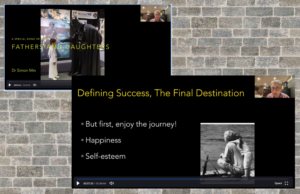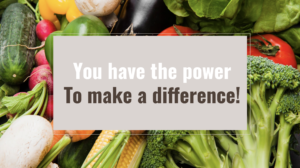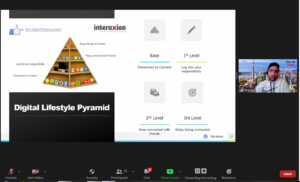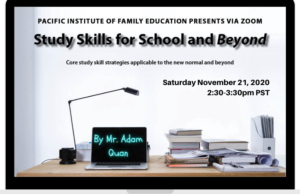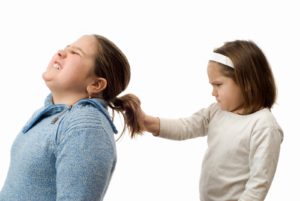Articles
I’m a parent, therefore I am: thoughts on the value of caregiving
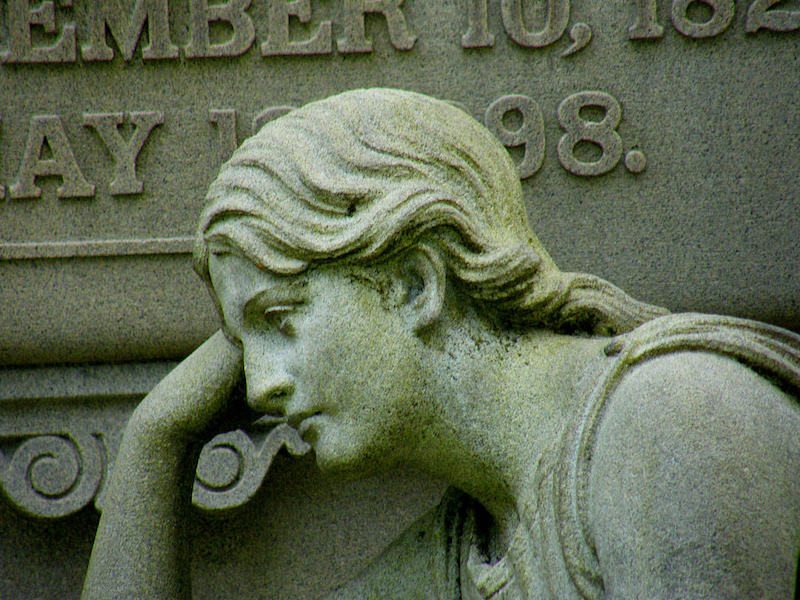
Woman thinker. Stanley Zimner/Flickr
Cartesian-inspired reflections after 16 years as a stay-at-home mom.
I’ve had a rather major life change recently. My youngest child has started school. Thus, for the first time in 16-and-a-half years, I do not have a pre-schooler in the house. To my mind, this is a parenting watershed moment that calls for some introspection.
It’s a bitter sweet moment. I struggle with parenting. I know, I know – I have six children, and yes, they were all planned. But so often I feel conflicted about parenting – like I’ll never get used to it or get the hang of it, or that I will ever really know what I am doing. I struggle with the constancy of it all. So the fact that I get more of a ‘break’ from my children during the day now is, in many ways, a welcome change.
But the ‘bitter-sweetness’ goes deeper than that. Not only have I had pre-schoolers for the past 16 and ½ years, but I’ve also been a stay at home mom for most of that time as well. So this life change includes not only all kids in school, but also me going to back to work after a significant amount of time. And this topic is the one upon which I have concentrated my deepest introspections.
Please note, it is not my intention in writing this post to offend anyone about the choices we all face regarding ‘working’ – whether that be outside the home, or inside the home. Rather, this post is a kind of meditation regarding my sojourn in the land of stay-at-home motherhood. It has changed me profoundly, and I need to take stock.
Being a stay-at-home mom was difficult for me. I did it out of principle, not out of a natural inclination. I knew it was the right thing for my family, and for myself. But knowing it was the right thing to do still didn’t make it easy. Throughout my time as a stay-at-home mom, I saw wonderful friends flourish in the working world. They were movers and shakers – empire builders – always on to ever greater positions in the public sphere: at the UN one day, off to India the next, advising the Somalian government on something or other, and then back again in the board room in New York. I was thrilled for them, but sometimes I couldn’t help interpreting their successes as my condemnation. It was hard to keep the ‘public sphere = success, family = no real success’ thoughts at bay. Yet, bittersweet though it was, I knew I needed to be at home for that season of my life.
Descartes, and the search for certainty
In thinking about how I came to my decision to be a stay-at-home mother, I cannot help but think of the philosopher Rene Descartes. That may seem odd, since Descartes was a French man who lived in the 1600’s, and was not, it is fair to say, particularly interested in parenting. He was concerned with topics like metaphysics and epistemology; in other words, with theories about the nature of reality and the nature of knowledge – topics which are very far removed from the decision to be a primary caregiver. But he wrote an extremely important work called The Meditations, in which he describes a kind of philosophical journey he takes in search of what he can know for certain. And it’s that journey that I find mirrors in some ways my own journey in which I searched for what I could know for certain about what really mattered regarding my role as a parent.
Descartes starts out the Meditations determined to build a fresh, new foundation upon which he can base any ‘firm’ knowledge. In order to do this, he decides he must go through a kind of exercise in extreme scepticism. He decides to overthrow all his beliefs in order to find some principle which he can know for certain is true – a principle which can trump any kind of sceptical argument.
Thus, Descartes descends into a kind of ‘sceptical pit’ as he goes through a process of questioning how he can be sure of what he sees around him. First, he decides that his senses are not to be trusted. It may seem that his senses are telling him that he is sitting at a desk before a fire, but there have been times when he has been dreaming that he is doing just that, only to wake up and discover there is no desk and no fire. And even if he isn’t dreaming, suppose there is an ‘evil demon’ who is deceiving Descartes into thinking that there is a physical world, when in reality there is not. Although Descartes does not believe there is such a demon, he nevertheless finds this to be a powerful thought experiment. What if everything we see around us is unreal?
Here, in doubting the existence of the physical world, Descartes reaches the bottom of his pit of scepticism. In order to get out of it, he has to find just one thing that he can know with certainty. This is what is called an ‘Archimedean point’. He can then hang onto that certainty, and hopefully use that certainty to help him understand other truths, and thus ascend up out of the pit of scepticism.
So what is the thing that Descartes can know for certain, the one certainty upon which he can build? He decides that even if the evil demon is deceiving him about the existence of the physical world, he notices that he still has thoughts. Descartes might be deceived into thinking the world is there, but even if the world is not there, he is still thinking the world is there. So the one thing he can know for certain is that he has thoughts, and that having these thoughts proves his existence. Thus, we get the famous phrase ‘Cogito, ergo sum’: ‘I am thinking, therefore I exist.’
Doubt: was it important for me to look after children?
I find that, as a parent, there is a way in which I identify strongly with Descartes’ process of doubt in order to achieve certainty. I’m not naturally a sceptic, but I have found that some of my most pressing doubts have been regarding my value as a caregiver. I did not search out these doubts; rather, they thrust themselves upon me after my first child was born. But in working through them, I have been able to find my own ‘Archimedean point’ – a truth about the value of caring that has enabled me to see the the importance of being a stay-at-home mom, even though it has always been hard for me to do it.
I’ve written before about the depression I suffered after my first child was born. I don’t think that depression was only a case of imbalanced hormones brought on by pregnancy and childbirth, although that was definitely part of it. (And when I say ‘only a case’ I do not mean to belittle post-natal depression in any way.) No, the depression brought on by the birth of my first child was also a depression brought on by shock, stress, and unmet expectations. Once she was in my arms, I felt love, absolutely, but also panic. I began to realize the enormity of the task before me, and I began to understand in a new way the trade-offs between pursuing my own career and caring for my daughter.
I also began to see that I didn’t want to admit that there were any trade-offs. It was then that I realized that even though I had always, in theory, been sympathetic to stay-at-home parenting, I had serious doubts about doing it myself.
So down I went into a Cartesian-like pit of scepticism about the value of caring, and about the value of caring for my children myself. Was it important to care for children? Well, of course it was. But then, why didn’t I want to do it? What was it about care that seemed so unimportant? My baby needed constant care, and yet, whenever I gave that care, I felt I should be doing something else, being somewhere else, achieving something else.
Society: ‘Caring for little children is not a thing of greatness’
I went down further into the pit: if caring for children is important, then why, as a society, don’t we act like it’s important? We condemn people for neglecting their children, absolutely. But we don’t praise them for doing well at caring for their children. Indeed, it is often quite the contrary. If a woman dedicates herself to looking after her family, she is usually the subject of ridicule. If a man does it, that’s a bit better, but only because he is willingly taking on the exploitation that has been born for thousands of years by women. The act of caring remains one that we cannot, for some reason, fully endorse.
Beyond all these considerations, the work of the philosopher Hannah Arendt kept playing on my mind. Arendt was interested in the distinction between the public sphere and the private sphere, and she argued that in ancient Greek thought, the public sphere was associated with freedom, achievement, self-fulfillment, and glory. It was the realm of fame, of a kind of immortality. The private sphere, on the other hand, was associated with necessity. This was the realm of what was necessary for survival; it was, indeed, the realm of the family, of care. It was also the realm of un-freedom, and un-glory.
Now, Arendt was only giving her analysis of Greek thought, but still, it struck something inside me. It’s funny how your circumstances can heighten your perceptions, so that you see things very clearly which you did not see before. During the necessities of breastfeeding, diaper changing, and pram pushing, I meditated on Arendt, pondering that perhaps there is something deep in the western psyche which divorces care from achievement. The basic thought is this: You cannot achieve great things if you take the time to care for little children. And consider a related thought: Caring for little children is not a thing of greatness. Although, according to Arendt, these statements would have been self-evident to the ancient Greek, in my postpartum state I could see that they were still very much alive in our contemporary culture.
All these thoughts propelled me to the bottom of my pit of scepticism. Was I really sacrificing myself on some sort of altar, to be irrecoverably exploited and then spat out into oblivion? What if all this effort, all this care was only going to lead me to nothingness? What if every kind of achievement in the public sphere was more important than anything which happened in the private sphere? What if, if I wanted to be truly successful in life, the last thing I should be doing was this?
Light: the act of being human by building another human life
But still, in the depths of my sceptical pit, there were certain things I could not doubt. I could not doubt that caring for my daughter was important. I also pondered on the undoubtable fact that my daughter was a human being, and this led me to other thoughts: Human beings are important, and they are designed in such a way that they need care from other human beings. But if those thoughts were certain, then something quite significant seemed to follow: not only is it important to care for human beings, but an important part of being a human being is giving care to other human beings.
Thus, I had found my Archimedean point, and this is what I held on to: an important part of my humanity was expressed – and indeed, was developed – in caring for my child. Somewhere, in all the feeding, changing, pacifying, singing, reading, hugging, mind-numbing swing-pushing, disciplining, and interacting, I was exercising my humanity. Somewhere, in all the thankless drudgery, in all the un-glory, in all the oblivion, was the act of being human, of living a human life, because I was building another human life.
I said earlier that my Cartesian experience helped me to find a fundamental truth about the value of caring that enabled me to understand the importance of being a stay-at-home mom. But please let me be clear: to understand the value of caring does not point exclusively to stay-at-home parenting, of course. I have enormous respect for those parents who find they can pursue a full-time career while at the same time fulfil their caring responsibilities.
Yet, understanding the value of caring does not rule out stay-at-home parenthood, either. For me, coming to my Archimedean point, I came to understand that caring is worth sacrificing for. This may sound obvious, but it is not a principle upon which our society operates. We still live in a world that values only sacrifices for achievement, not sacrifices for care.
Thus, to understand that care was worth sacrificing for was invaluable for me. I could see that, for a time, I was not going to be able to keep up with the demands of caring while at the same time pursuing my career in the way that was expected of me. Exciting though the greatness of the public sphere was, I knew that the most important expressions of my humanity- indeed, the most important expressions of any greatness – would be in my family. If there was a conflict, that had to come first.
And now, after a long sojourn in the wilderness, it’s time to come back. But I am rather surprised by my feelings about it all. When I ponder this change, I feel like I’m standing at the edge of a precipice. However, I’m not about to fall. Rather, I’ve just climbed up the precipice. It’s been a very hard, long climb, and you’d think I would be happy to be at the top. And I am. But, strangely, I don’t feel the strong sense of relief that I thought I would feel. Mostly, I just feel very humbled, and very grateful that I had the opportunity to make the climb. And when I reflect on my climb, although I can remember how difficult it was, all I feel is a deep, incredible peace. The Cartesian-like doubts are gone. That climb was the right one for me to make.
Holly Hamilton-Bleakley is a mother of six living in California. She is also an Adjunct Assistant Professor in the Department of Philosophy at the University of San Diego. This article is reproduced from her blog, Philosophy For Parents, with permission.
This article was written by Holly Hamilton-Bleakley. Reposted with permission from https://www.mercatornet.com/features/view/im-a-parent-therefore-i-am-thoughts-on-the-value-of-caregiving/19007

